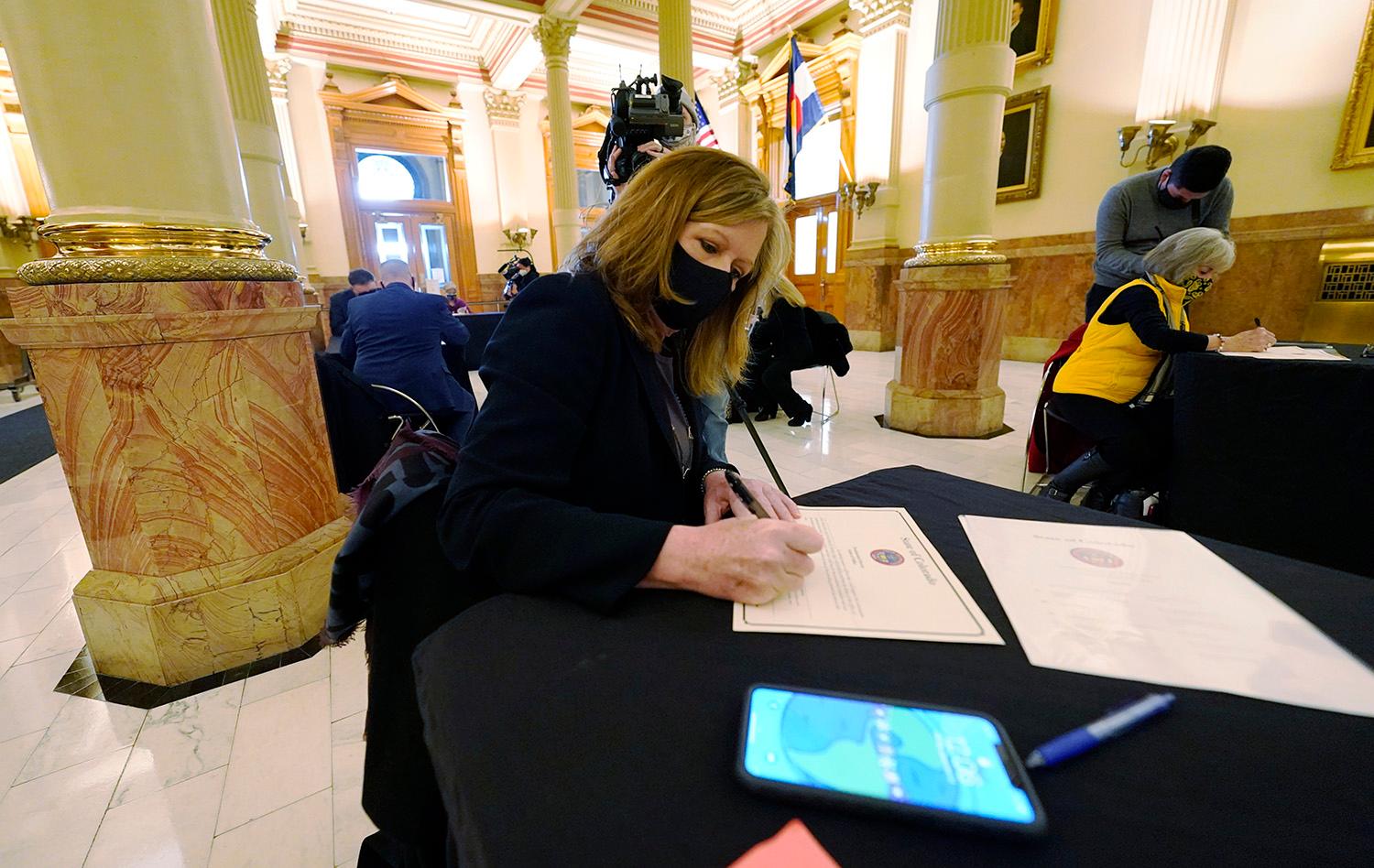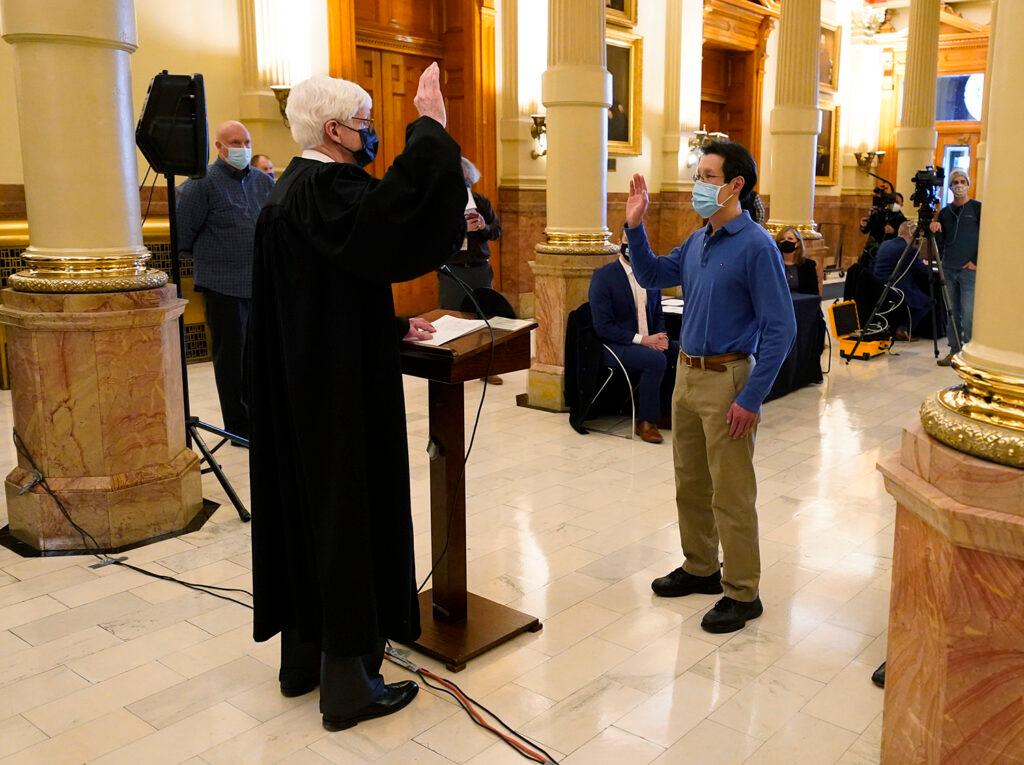
It's official -- Colorado's nine electors have cast their ballots for Democratic President-elect Joe Biden and Vice President-elect Kamala Harris, who won Colorado's popular vote by just over 13 points. The electors gathered at the state capitol on Monday for the quadrennial event.
For former state lawmaker Polly Baca of Denver, the experience was both familiar, and unique. This was Baca’s fourth time serving as a Democratic elector. She and others took a rapid COVID-19 test before gathering inside the Capitol’s main foyer, sitting at tables that were spaced well apart from each other. The building is currently closed to the public but a few members of the media and staff were on hand to observe the proceedings.
“I hope we never have another meeting of the Electoral College under these circumstances,” Baca said. “For both the reason of having a pandemic, and having a person who refuses to accept the will of the American voters.”
While the role of presidential electors is largely a formality, translating the results of each state’s popular choice into constitutionally-required Electoral College votes, it has taken on increased prominence this election as President Donald Trump continues to make baseless claims of widespread voter fraud and refuses to concede the election.
“I'm hoping after today that not only the president, but the other Republican leadership will put this to rest and recognize that this is what our democratic process is all about and they will honor it and follow the rule of law,” said Judi Ingelido, an elector from Colorado Springs who is a retired teacher and middle school principal.

Colorado’s political parties each picked a slate of nine presidential electors during their state assemblies in the spring. Only the party whose candidate won the state’s popular vote gets to send their electors to the capitol.
First-time elector Victoria Marquesen of Pueblo found her eyes filling with tears when the meeting concluded. “I didn't think I'd be as emotional as I am because it's just ceremonial.”
But Marquesen said the vote brought a sense of closure. “I think that makes me sentimental because we know it's final, but it's just that much more clarification for everybody that it really was a democratic election.”
However, Republican doubts about election integrity don’t seem to be dying down anytime soon, nationally or in Colorado. Some Colorado GOP officials claim — with no evidence — that they are worried about fraud in the state's election system. The Republican-led legislative audit committee will hold a hearing on the issue Tuesday. A Republican Representative said one of president Trump's lawyers is on the witness list to testify.
Colorado’s electoral vote meeting was much quieter than it was four years ago, when several electors — including former Rep. Baca — initially refused to cast ballots for Democrat Hillary Clinton, the winner of the state’s popular vote, as part of an unsuccessful effort to deny President Trump a victory in the Electoral College.
Baca backed down, but another elector who refused was replaced, and then sued the state arguing he should have been allowed to vote his conscience. Former Rep. Baca joined him on the lawsuit, which ended with the US Supreme Court reaffirming laws that require electors to follow the outcome of a state’s popular vote.
Many of the electors, including Baca, said they support eliminating the Electoral College altogether in favor of deciding the presidential election by a national popular vote. Colorado belongs to a coalition of 16 states and the District of Columbia that have agreed to award their electoral votes to the winner of the national popular vote, rather than the winners of each individual states’ votes for president. The compact will only take effect once it has enough signatories to determine the outcome of the election.
On Monday, Gov. Jared Polis noted that in spite of the pandemic Coloradans voted in record numbers in 2020. “I was so proud to see 86 percent of registered voters in Colorado of all persuasions make their voice heard.”
Polis said Colorado had the second highest turnout in the country, at 76.4 percent of the eligible population. “It gives us room for improvement next time, right? We want to be first, but we should be proud of Coloradans for participating in these great numbers.”









